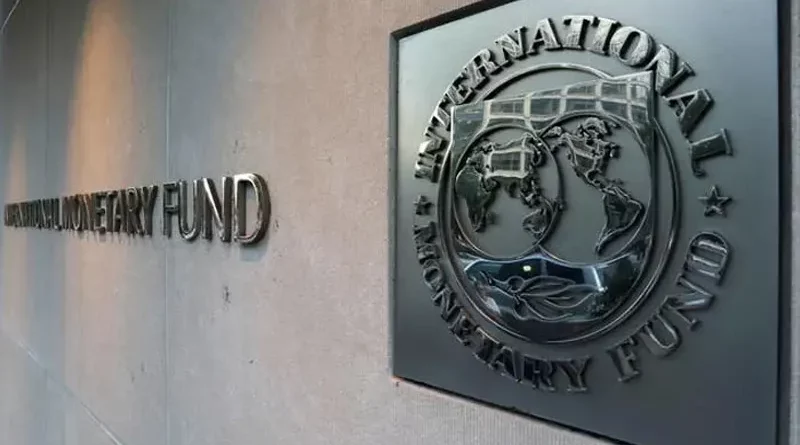IMF wants tax burden on non-salaried, salaried class increased
ISLAMABAD: The International Monetary Fund (IMF) has proposed the Federal Board of Revenue (FBR) to double the tax burden for salaried and non-salaried classes which would impact the middle and upper middle-income groups if accepted, The News reported Saturday.
The global lender has recommended increasing the taxes by removing their distinctions, reducing the number of slabs from seven to four and eliminating tax exemption on the contribution of private employers to pensioners.
The IMF estimated that if the recommendations on Personal Income Tax (PIT) were fully implemented, it could yield additional revenues of 0.5% of GDP, equivalent to Rs500 billion on an annual basis.
In the current fiscal year, the FBR has so far collected Rs215 billion from the salaried class in the first eight months (July-Feb) period of the current fiscal year.
It is projected that the FBR could fetch approximately Rs300 billion from the salaried class. The IMF’s recommendation on PIT could bring additional revenues of Rs500 billion from both salaried and non-salaried classes.
Top official sources confirmed to The News on Friday that the FBR could jack up its revenues by scrapping exemptions and other preferential tax treatments.
The tax rates for PIT must be simplified and the number of slabs should also be reduced having a single progressive manner, as recommended by the IMF.
Currently, there are seven tax slabs. Where the taxable income does not exceed Rs400,000 for the salaried class, there is a zero tax rate. Where the taxable income exceeds Rs400,000 but does not exceed Rs1,200,000, there is a tax rate of 5% of the amount exceeding Rs400,000. Where the taxable income exceeds Rs1,200,000 but does not exceed Rs2,400,000, there is Rs40,000 + 10% of the amount exceeding Rs1,200,000.
Moreover, where the taxable income exceeds Rs2,400,000 but does not exceed Rs3,600,000, there is a tax rate of Rs160,000 + 15% of the amount exceeding Rs2,400,000. Where the taxable income exceeds Rs3,600,000 but does not exceed Rs4,800,000, there is a tax rate of Rs340,000 + 20% of the amount exceeding Rs3,600,000. Where the taxable income exceeds Rs4,800,000 but does not exceed Rs6,000,000, there is a tax rate of Rs580,000 + 25% of the amount exceeding Rs4,800,000. In the last and seventh slab, where the taxable income exceeds Rs6,000,000, there is a tax rate of Rs880,000+ 30% of the amount exceeding Rs6,000,000.
Tax experts believe that if the number of slabs was reduced, it would slash down the progressiveness of PIT because the FBR would have to jack up tax rates for income exceeding Rs2 million whereas the maximum rates in the existing slab being applied at income exceeding Rs6 million per annum.
The IMF has recommended for lowering the income threshold for the higher rates slabs.
The IMF has asked the FBR to review the Second Schedule and Chapter III of the Income Tax Ordinance (ITO) to eliminate preferential treatment to employees in specific sectors, tax credit for investment in shares, deduction for mortgage payments, tax deductions for full-time teachers and researchers and maintain the zero rate threshold at the same levels if it is not possible to reduce it.
These all measures could yield 0.5% of GDP in additional revenues in the national kitty.
On the pension front, the Washington-based lender has recommended to ensure either pension contributions or benefits should be taxed. To achieve the objectives, the IMF has asked either to eliminate the benefits of the deduction of voluntary payments to workers’ participation fund or eliminate the exemption of pension and tax them by applying one of the alternatives described.
When contacted, former FBR Member Tax Policy Dr Mohammad Iqbal said the salary income was taxed on a gross basis and no deduction was allowed against the salary income in Pakistan, whereas in the rest of the world, various deductions, including personal expenses such as education of children, are given.
“All other sources of income, such as property or business income, are reduced by various deductions and expenses, and tax is not imposed on gross receipts, unlike salary income. In Pakistan, as sources of income are not documented except salary, non-salaried persons are at liberty to declare income and pay tax thereon according to their choice. Whereas salary income is fully documented and there is no room for under-declarations,” he added.

